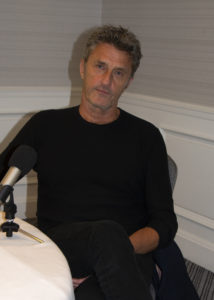
Pawel Pawilkowski, San Francisco, CA 10/5/18
Click here to listen to the interview.
When talking about a film that is based on actual events, I always like to ask about the difference between emotional truth and factual truth. It’s a question I posed to Pawel Pawlikowski when I spoke with him on October 5, 2018, about his film, COLD WAR. Loosely based on the tempestuous love story between his parents, it’s is a work that prompts many questions, but I decided to start by asking about what black-and-white cinematography can do that color can’t. It’s a statement move and a choice not made lightly. Pawlikowski’s response, like his film, was a mixture of dry humor and great insight.
We went on to talk about him revisiting the Poland of his youth with COLD WAR, and which his previous film (also in black-and-white), IDA; the power of music; what is the language, of the many he speaks fluently, that he dreams; the advantages of not having gone to film school, and
COLD WAR, set in the years after World War II, charts the stormy relationship between Zula, a determined country girl who has set her sights on a singing career, and Victor, the co-director of a traditional music troupe who hires her as much for her personality as her talent. Over the years, they part, reunite, and generally make each other’s life divine and devastating, but never boring. Told on a grand scale, but with an exquisitely humane grounding, COLD WAR considers love, passion, and happiness with compassion and honestly.
The film stars Kulig as Zula, Tomasz Kot as Victor. Pawilkowski’s previous work includes IDA, MY SUMMER OF LOVE, and THE WOMAN IN THE FIFTH.
Your Thoughts?